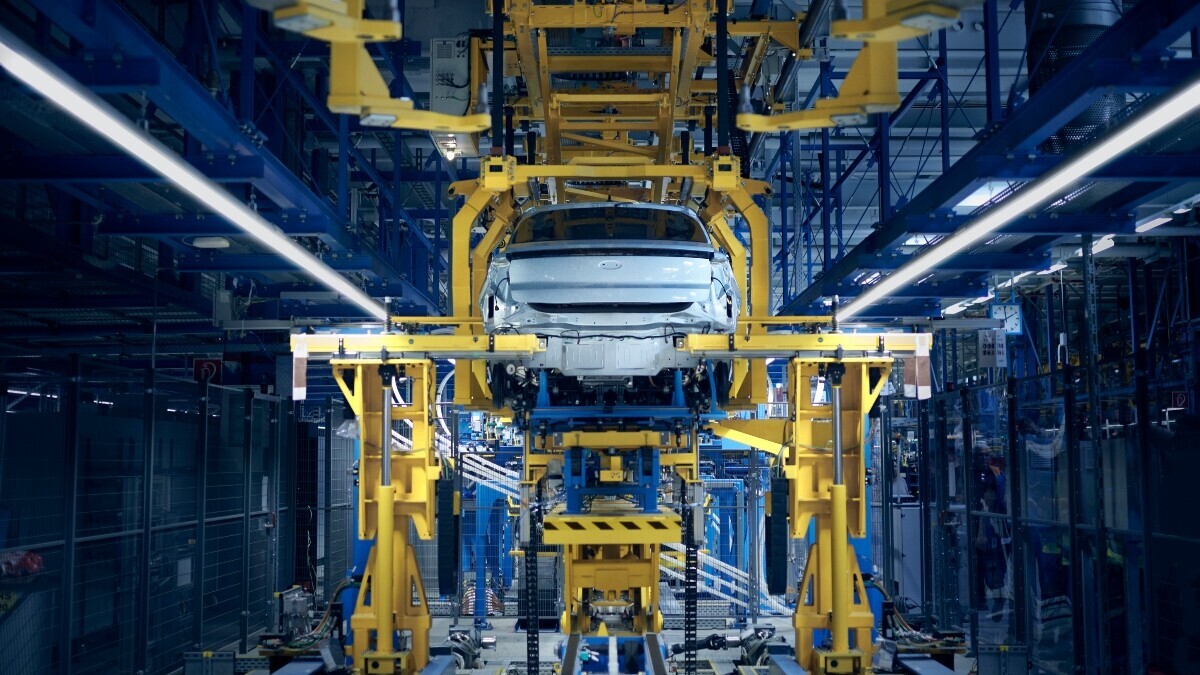
Story by
Siôn Geschwindt
Siôn is a reporter at TNW. From startups to tech giants, he covers the length and breadth of the European tech ecosystem. With a background Siôn is a reporter at TNW. From startups to tech giants, he covers the length and breadth of the European tech ecosystem. With a background in environmental science, Siôn has a bias for solutions delivering environmental and social impact at scale.
This week, Ford opened its new EV production facility in Cologne. The move is part of the American automaker’s push to make its entire European passenger vehicle lineup all-electric by 2030.
Originally opened back in 1930, Ford has spent the past two years — and $2bn — redeveloping the facility into a solely EV manufacturing centre.
The Cologne Electric Vehicle Centre will produce Ford’s next-gen EVs, the first of which will be the electric Explorer, followed by a yet-to-be-named sports crossover.
The plant is expected to churn out over 250,000 vehicles per year, a big chunk of Ford’s target to build two million EVs globally each year by the end of 2026.
We’ve built nearly 18M vehicles at our assembly plant in Cologne since 1931. Today it officially re-opens as the Ford Cologne Electric Vehicle Center, our first carbon neutral assembly plant worldwide. The start of a new electric era for @Ford in Europe. #CologneEVCenter pic.twitter.com/6aUH3ic2Jq
— Jim Farley (@jimfarley98) June 12, 2023
It is billed as Ford’s first carbon-neutral assembly plant as the firm aims to achieve carbon neutrality across its European operations – including facilities, logistics and suppliers – by 2035.
“This facility will now be one of the most efficient and environmentally responsible plants in the entire industry,” said executive chair Bill Ford, the great-grandson of company founder Henry Ford who first inaugurated the plant over 90 years ago.
In addition to its sustainability credentials, the ‘state-of-the-art’ EV centre utilises machine learning, autonomous transport systems, robotics, and augmented reality to enhance production efficiency.
“We are implementing advanced technologies to build fully connected, software-defined vehicles that meet our customers’ demand for zero emission mobility,” said Martin Sander, general manager of Ford Model e Europe.
Last year, Ford said it plans to introduce three new electric passenger vehicles and four new electric commercial vehicles in Europe by 2024, and looks to sell more than 600,000 EVs in the region by 2026.
As EV sales in Europe reach record levels, Ford inevitably isn’t the only automaker opening EV megafactories on the continent. Last year, Tesla inaugurated its Berlin Gigafactory, capable of producing half a million EVs per year, while Volvo is building a new EV manufacturing plant in Slovakia, due to open in 2026.
Get the TNW newsletter
Get the most important tech news in your inbox each week.
Also tagged with